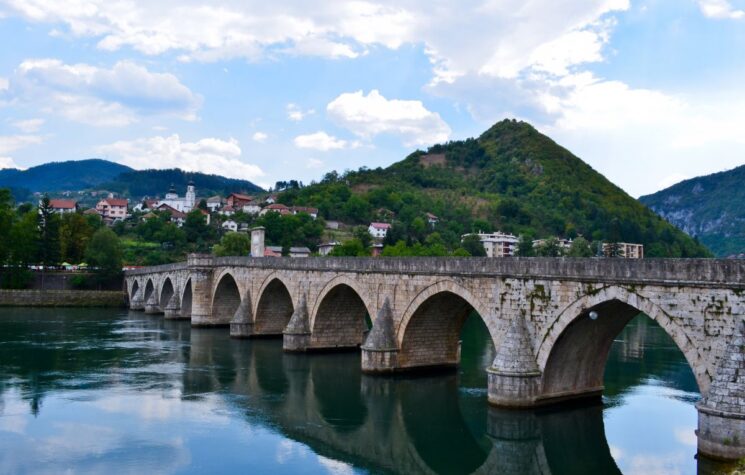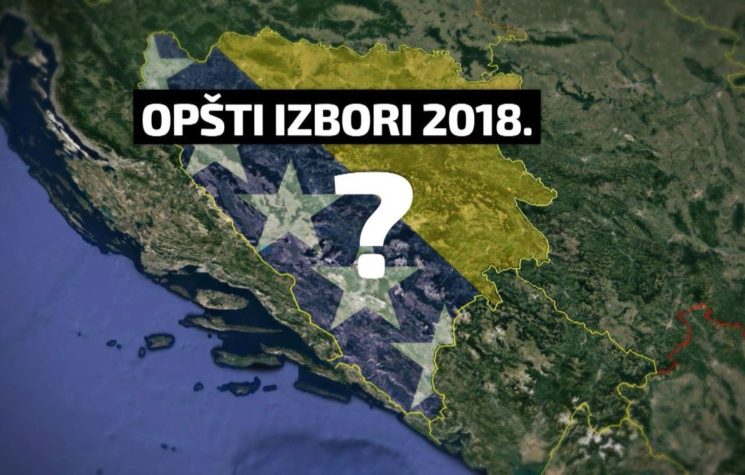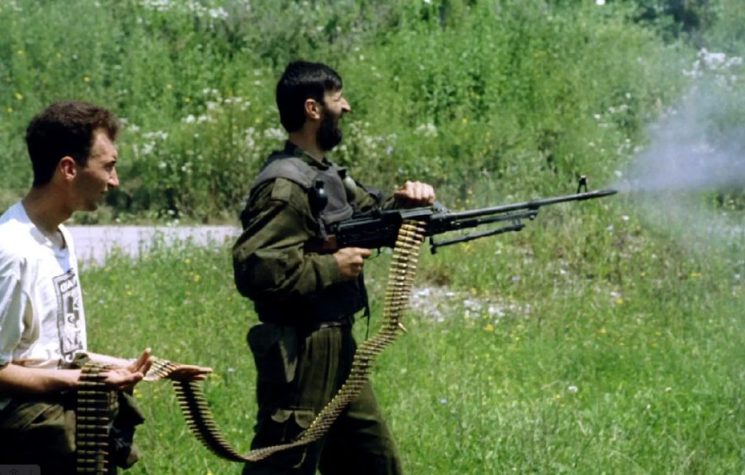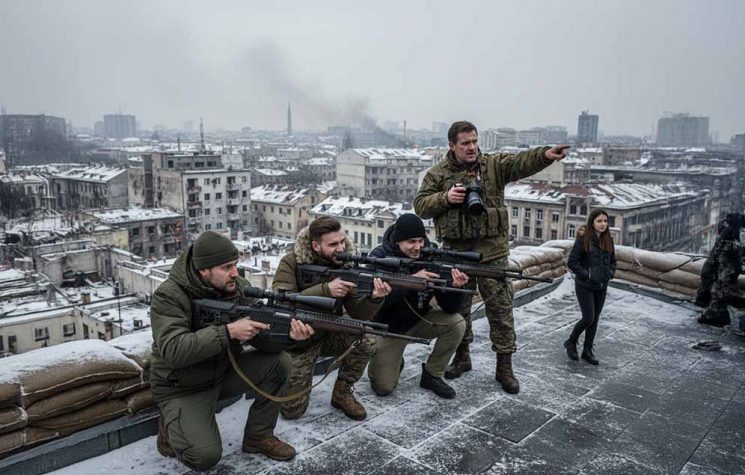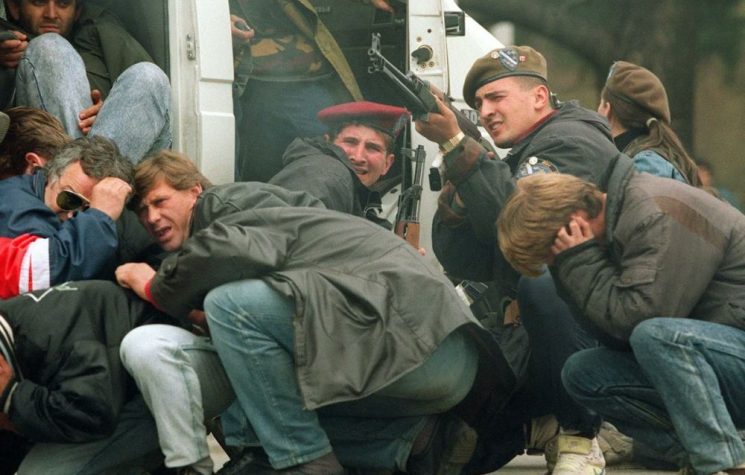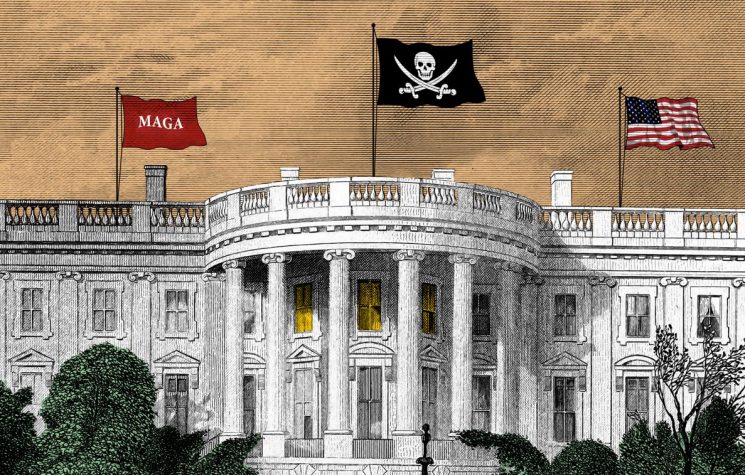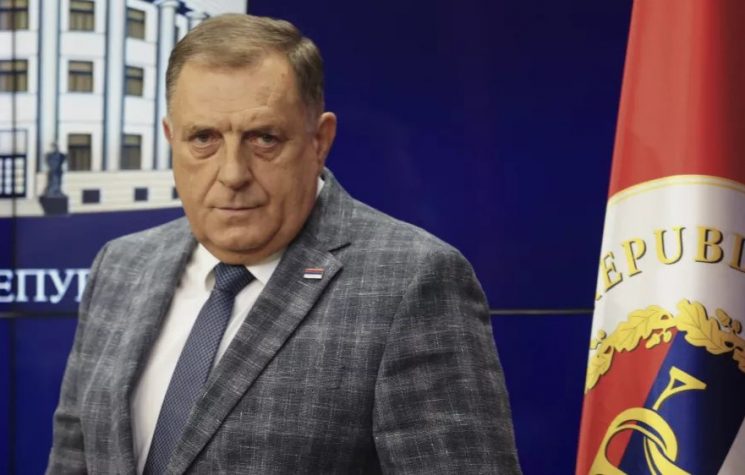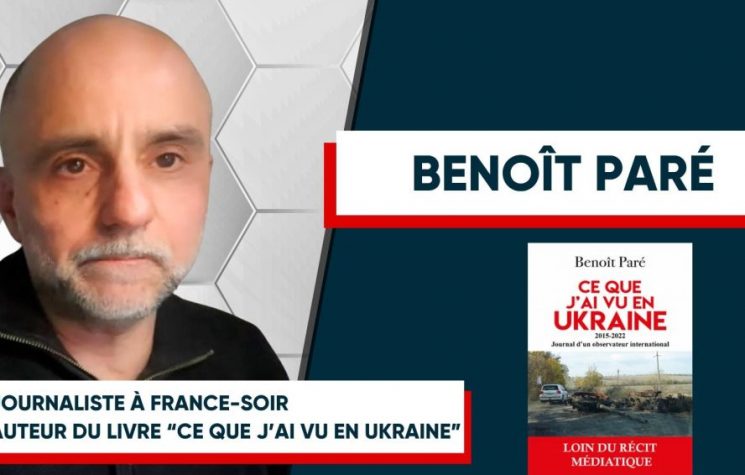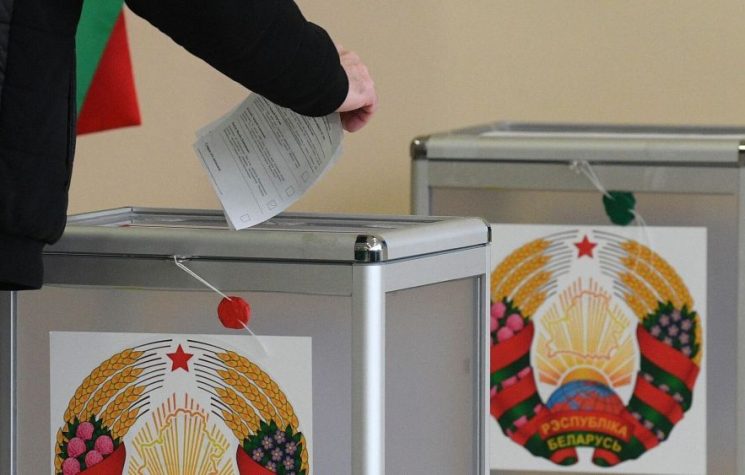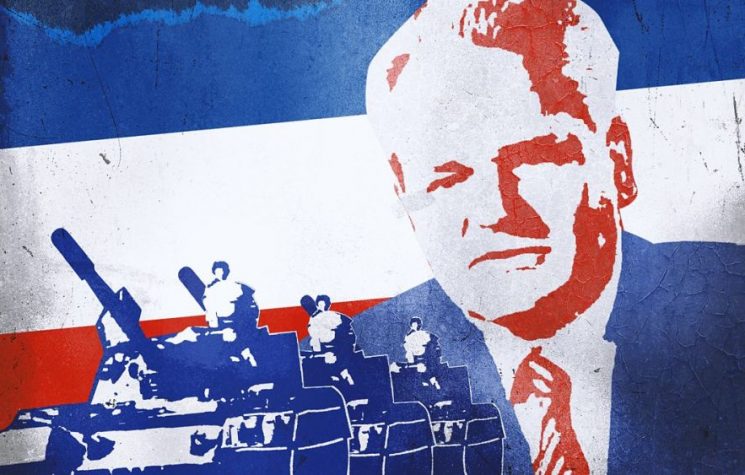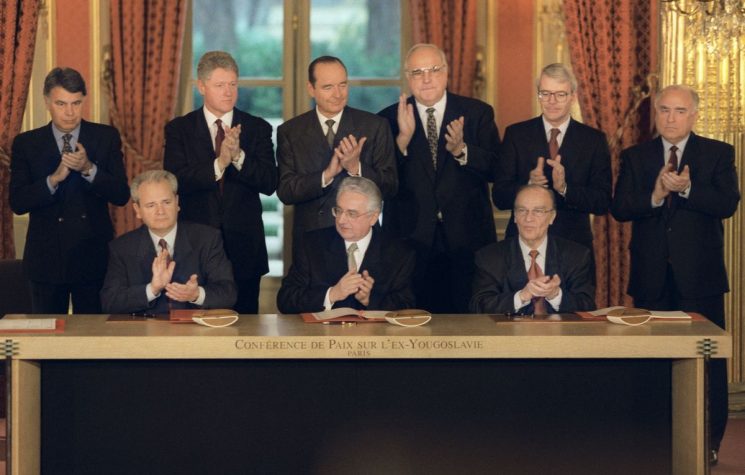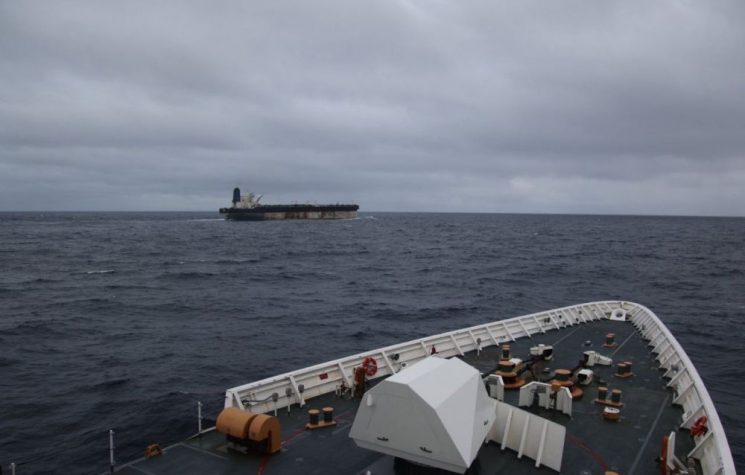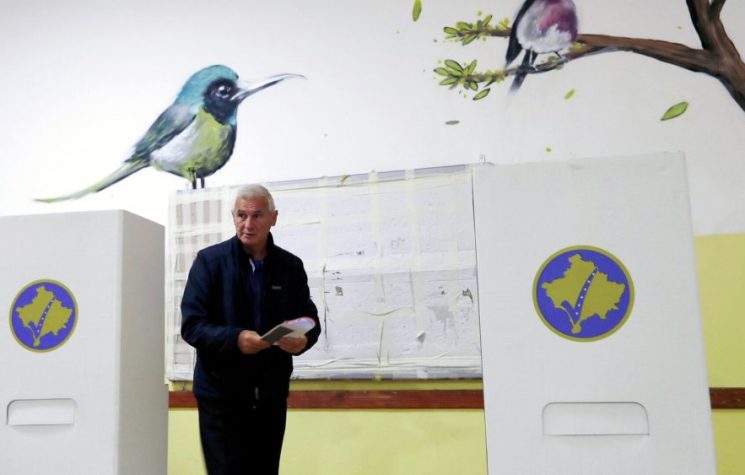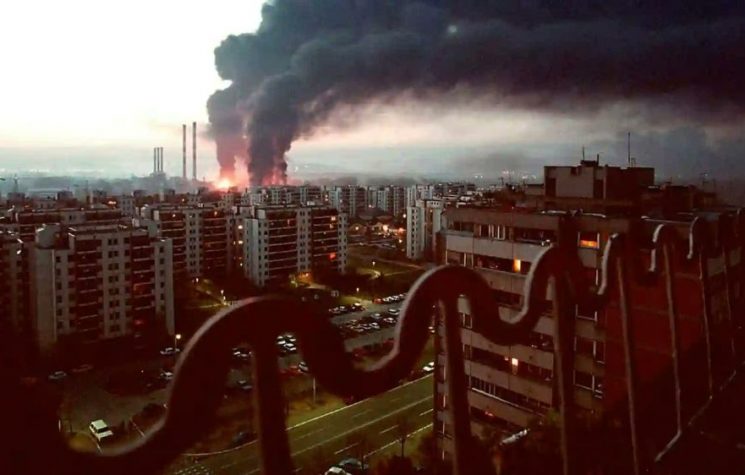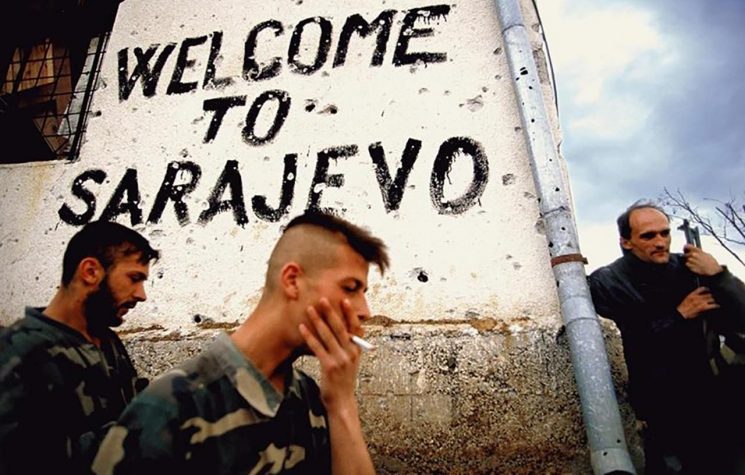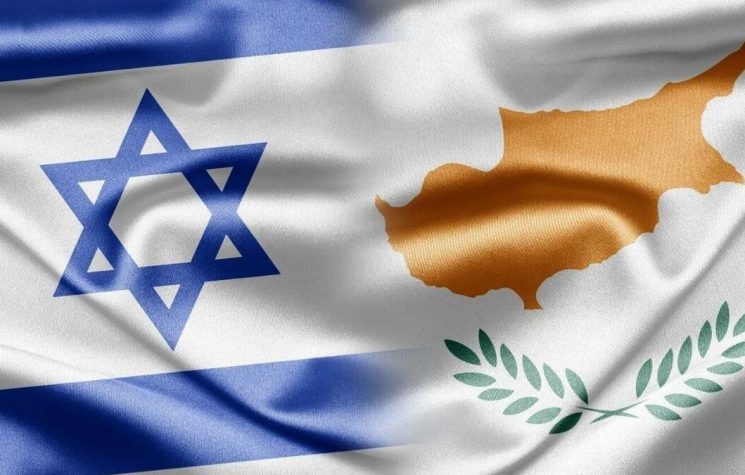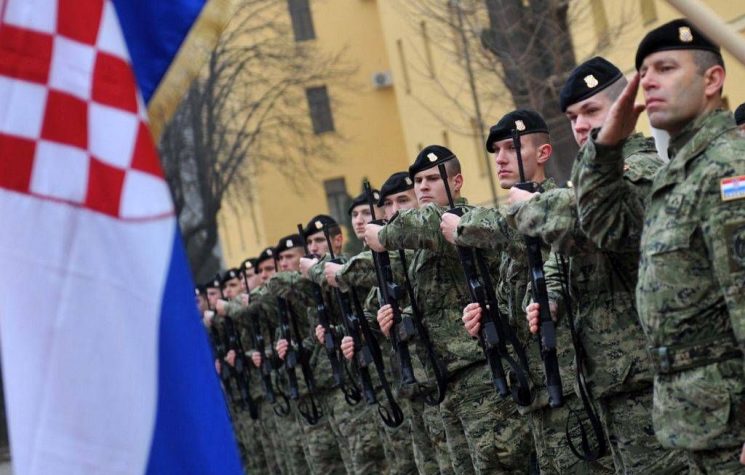It is difficult to conceive that all the elements of a perfect storm in the three central Balkans statelets have been planted fortuitously, without the guidance of a single strategic concept or operational centre.
The outgoing “high commissioner” of Bosnia and Herzegovina Bosnia and Herzegovina Valentin Inzko’s Parthian shot threatens to unravel the restless raj he has haughtily ruled since 2009, amply rewarded for his generous efforts with an annual salary of half a million euros.
For several years Inzko has been threatening to impose in Bosnia a “Srebrenica genocide denial” law, relying on his presumed prerogatives under the Dayton peace agreement, unless that is the local lawmakers got his hint and passed the prescribed law motu propio. But of course as a lawyer Inzko should be well aware that in conditions of coercion there can be no motu propio. That knowledge did not prevent him, however, precisely from the exercise of coercion just days before his heartily desired departure, as if he deliberately wanted the coda to his rule to symbolize the general lawlessness of his office ever since it was set up in 1996, supposedly as a temporary measure to facilitate peace and reconciliation in a strife riven land. In the event, the “temporary measure” making Bosnia a full-fledged NATO protectorate has been in effect for a quarter of a century, and with no end in sight, but with increasingly determined resistance by Security Council members Russia and China.
Inzko’s decree was just another in a long train of routine humiliations for the supposedly independent and sovereign state of Bosnia and Herzegovina.
Like all previous occupiers of Bosnia and Herzegovina, Inzko and his NATO brethren have found the Serb element a very hard nut to crack. In the present situation, the contentious issue is the foreign cabal’s insistence that Bosnian Serbs, whose political embodiment is one of the country’s two entities, the Republic of Srpska, humbly admit that they committed genocide on their Muslim neighbours in July of 1995. Either that, or stop denying that they did, which is practically the same thing. Except for some usual suspects from the ranks of local Western-financed NGOs few takers have been found, which infuriates the international overseers immensely. Moreover, due to Bosnia’s post-Dayton constitutional structure a “national interest” issue such as this cannot be given legislative effect without a consensus of all three constituent ethnic groups. Republic of Srpska’s determined opposition to the self-incriminating Srebrenica genocide denial initiative has effectively squashed all attempts to pass such a law using regular legislative procedures. That is when “high representative” Inzko stepped in to do the job.
Pointedly, Milorad Dodik, the Serbian representative in Bosnia’s collective presidency, commented that the imposition of this law is the “final nail in the coffin” of the failed state of Bosnia. (He would have said “the final straw” had he been talking in English, which he does not speak.) He was obviously alluding to the title of a book by Bosnian Serb academic, Prof. Nenad Kecmanovic, “Bosnia, the impossible state,” which takes a very dim view of its subject’s viability.
The principal points in the current controversy are the unreasonably long persistence of the office of the “high representative” in Bosnia (supposedly he “represents” the European Union, of which Bosnia is not even a member) and the actual extent of his powers.
Putting and keeping their man on the vice-regal throne in Sarajevo (individual officials have changed over the last 25 years but the general political direction of their office has invariably remained the same) is invested with obvious geostrategic logic, which is to secure the empire’s Balkan rear for the Ostfront, when the time to open it is deemed ripe. In the meantime, by hook and by crook the empire and its local “high representatives” have pursued obstinately three single-minded goals. These are to dismantle the loose confederation agreed upon in Dayton in favor of a centralised state ruled by their satraps from Sarajevo, to incorporate Bosnia into the crumbling European Union, and to make it join the NATO alliance. A fundamental obstacle to the achievement of all those goals is an empowered Republic of Srpska, with its stubbornly retrograde population whose unanimous affections in their entirety flow in the opposite direction, to … well, you know who, but it is neither Brussels, London nor Washington.
In that context, the actual powers under the Dayton peace agreement of the “high representative,” whose task is to make all the above happen, are a core issue. Those powers, it seems, have largely been based on an insolent bluff, the so-called “Bonn powers” supposedly delivered to the Bosnian viceroy at a meeting of Western Alliance officials in Germany in the late 90s, much akin to the fraudulent Donatio Constantini and other similar medieval swindles. The entire fraudulent scheme was debunked in detail and with great effectiveness by British academic John Laughland some time ago. But alas! Balkan politicians do not seem to have grasped Dr. Laughland’s memo because they are not very fluent in English. Besides, their not wholly unjustified inferiority complex makes them susceptible to the most preposterous claims, especially when they are delivered by stern Western officials in pin striped suits, to whose impertinent demands “Yes, bwana” is always the only possible answer.
Inzko’s imposition in Bosnia of a country-wide Srebrenica genocide denial law, in clear defiance of the Serb half of the country, is already provoking exactly the sort of destabilising reactions that were probably envisaged by those who inspired it. There is talk of the Serb entity walking out of Bosnia and Herzegovina, not recognising the credentials of Inzko’s successor, not enforcing Inzko’s arbitrary decree on its territory, and so forth. In short, the planned exacerbation of Bosnia’s permanent crisis has so far been an outstanding success.
Add to that the recent “Srebrenica denial” spat in neighbouring Montenegro which further undermined the already wobbly post-Djukanovic government and the campaign in Serbia, clearly inspired by Western services and their agents of influence, to further discredit the unsavoury current regime and nudge it closer to recognizing Kosovo secession in return for a let-up on the political pressure, and all the ingredients for a toxic Balkan brew have been assembled.
A “Balkan Spring,” perhaps a bit late in the year, but probably welcome any time, may well be in the early implementation stage. It is difficult to conceive that all the elements of a perfect storm in the three central Balkans statelets have been planted fortuitously, without the guidance of a single strategic concept or operational centre.








